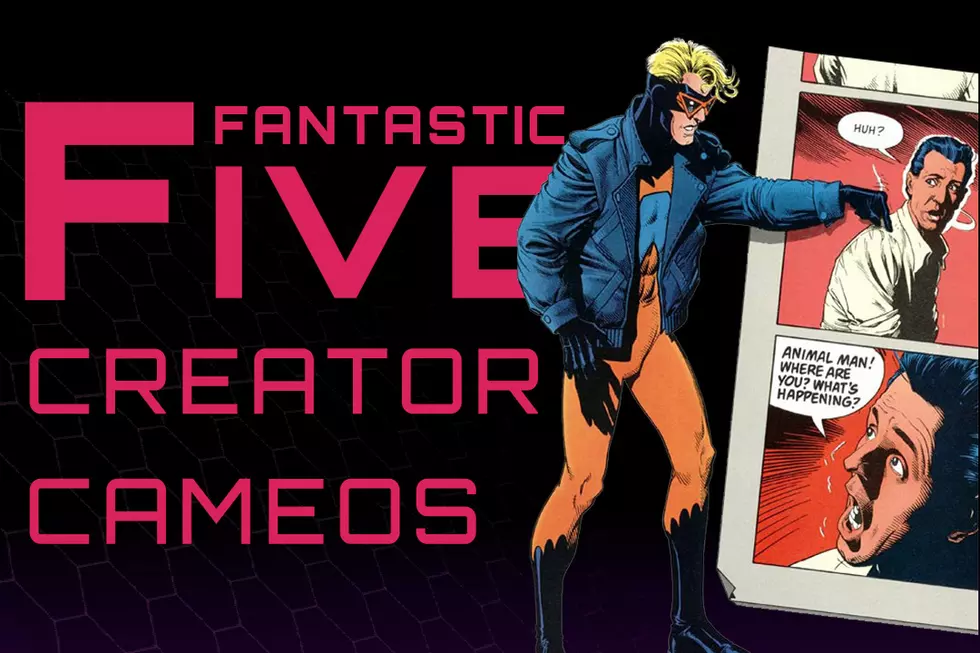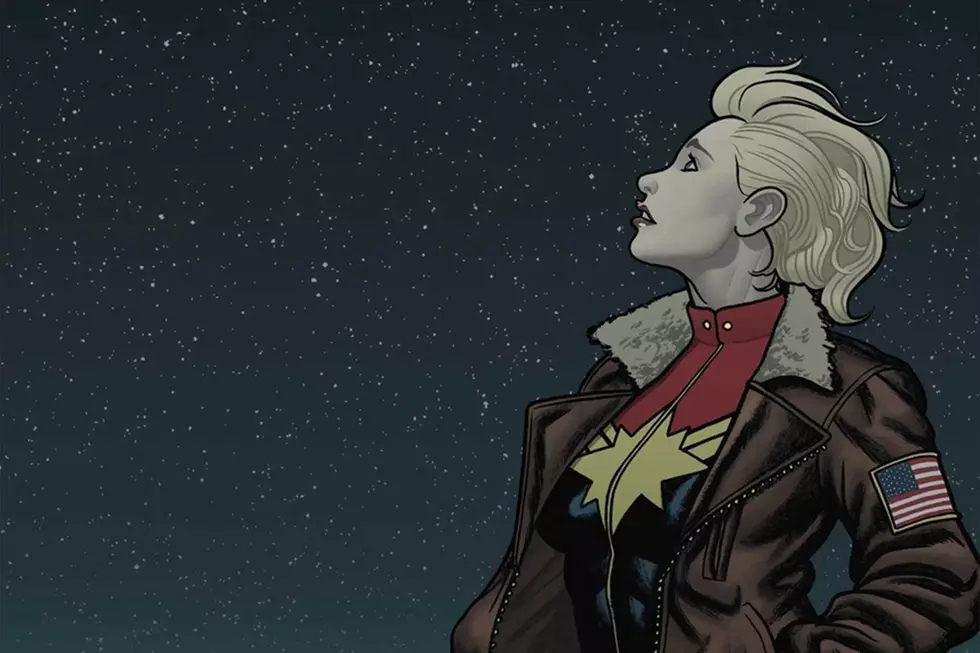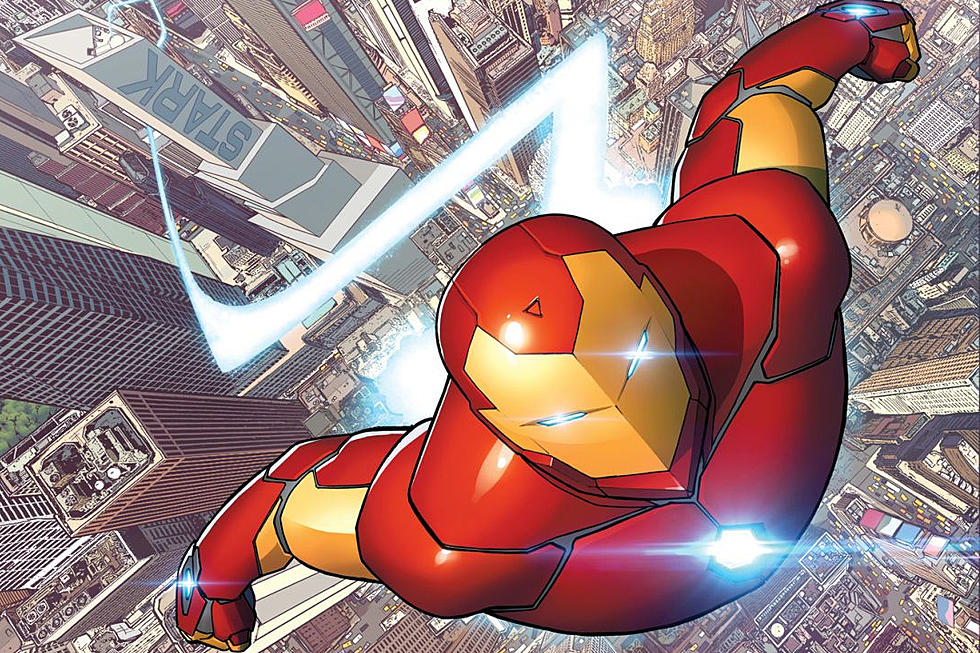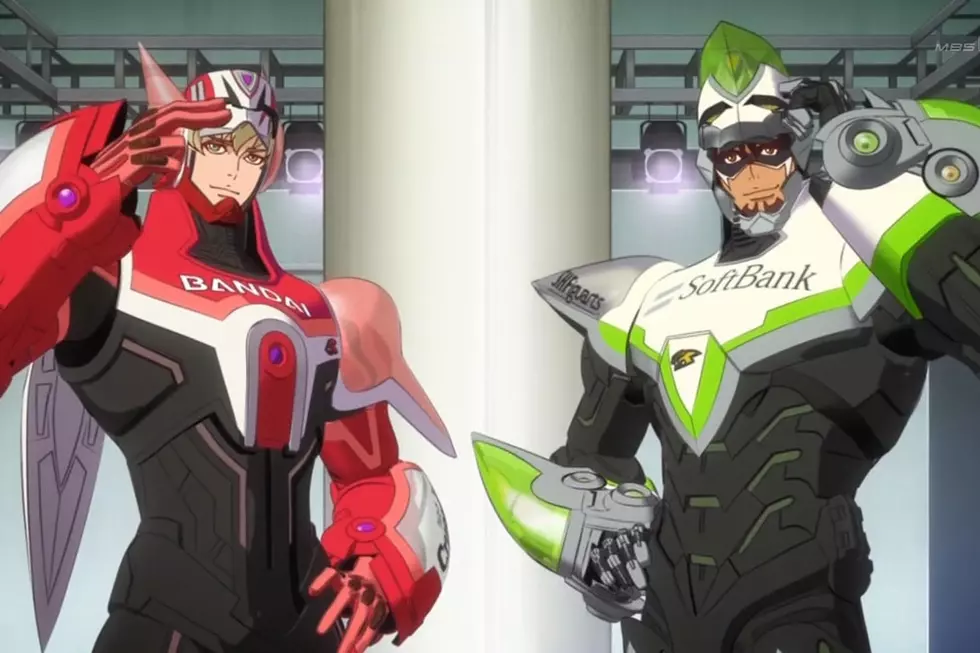
Stan Lee’s ‘Silver Surfer': His Most Daring Comic of the Silver Age

The first issue of the Silver Surfer miniseries by Greg Pak, Stephen Segovia, and Carlo Pagulayan recently hit stands, providing the first intimate look we've had at the cosmic surfboarding Herald of Galactus in a while. It can be hard for people to get a handle on Silver Surfer whenever he's doing something besides shooting bolts of cosmic force at Thanos. When portrayed as hesitant warrior-poet, ambivalent force of nature, or cosmic messiah, it's difficult for those stories to take hold in popular consciousness even when penned by one of the biggest names in comics history. In the late sixties, Stan Lee wrote eighteen issues of The Silver Surfer before it was canceled -- unfortunate considering that it might be Stan Lee's most daring, creative, and original work of the era.

The Silver Surfer first appeared in Fantastic Four #48 as a Jack Kirby brainfart. While drawing the pages, Kirby just threw in an illustration of a bald guy riding a surfboard, figuring Galactus the World-Devourer needed a herald. As ridiculous as a bald surfer working for a cosmic entity is, the idea worked and inspired Lee and Kirby to create one of the best stories of the era.
As we all know, when the planet-eating cosmic demi-god Galactus came to Earth, his Herald the Silver Surfer met Alicia Masters, who showed him the beauty and potential of mankind. The Silver Surfer turned against Galactus and helped save the world, but as punishment, he was to be forever confined to Earth, no longer allowed to skirt the heavens.
 When an original Silver Surfer series with artist John Buscema came together in 1967, Lee poured as much relevance and poetry into it as he could. Coupled with the sinewy, muscular figures, cosmic freakouts and stunning landscapes of Buscema's artwork, the results are quietly fascinating.
When an original Silver Surfer series with artist John Buscema came together in 1967, Lee poured as much relevance and poetry into it as he could. Coupled with the sinewy, muscular figures, cosmic freakouts and stunning landscapes of Buscema's artwork, the results are quietly fascinating.
Self-sacrificing, yes, but Radd's greatest desire was also to explore the cosmos, and as herald for Galactus, he'd be able to travel anywhere in the universe. After the events of The Galactus Trilogy, however, he is forever tethered to Earth in punishment for aiding humanity, and no longer allowed to explore the heavens.
Noble but tragic with obvious parallels to Lucifer, many nonetheless seem convinced that the Surfer as Lee and Buscema portrayed him is a messianic figure or new version of Christ, and that the first Silver Surfer series is in that respect an abject failure. They are wrong.
Let's consider the facts: Stan Lee is an agnostic humanist. With as much grace as Lee probably thought he could get away with (he still ended! every! sentence! with an exclamation!) he got his points across. And despite the wider cultural significance of the X-Men's equality allegory and Spider-Man's example of personal responsibility, the messages transmitted in The Silver Surfer might be the ones that mattered to Lee the most.

Before Green Lantern/Green Arrow brought social consciousness to comics' common vocabulary, The Silver Surfer was preaching its own humanistic gospel: ecological awareness, tolerance, respect for basic human dignity... and with the Silver Surfer, Lee had finally found his mouthpiece, his own little fallen angel with which he could riff on Paradise Lost and Letters from the Earth.
"I have found no planet more blessed than this....It is as though the human race has been divinely favored over all who live!""Now here I stand alone and forsaken upon this hostile world! I, who have crested the waves of infinity... exiled forever upon this lonely sphere..."
Here Lee's quasi-Shakespearean dialogue and mongrel iambic is in full force and aimed at the ignorance, racism, materialism, and ridiculousness of mankind, especially in human institutions like the military and law enforcement, religions, mob mentality and the madness of crowds. Again and again the Surfer encounters man's brutality, again and again he tries to escape, throwing himself at Galactus' barrier until it nearly kills him.
The adventures the Surfer embarks on in his time on Earth are simple: conflicts with hostile aliens, generic terrorists, classic villains like The Stranger and The Abomination, and an ongoing struggle with Mephisto. The real struggle is to locate the beauty of being human, to claw through the meat and find mankind's hidden heart.

Unlike Lucifer as portrayed elsewhere, the Silver Surfer is altruistically good (probably because he's a superhero); despite his fear and confusion, he fights against crime, poverty, and injustice because he knows, objectively, that they're wrong. Having come from a paradise, he knows that paradise is achievable. And unlike the shiftless... Zenn-Lanians(?) content to sit back and enjoy the luxury of their easy lives, man still wants to work -- to create and explore, to evolve -- and this appeals to him.
As Norrin Radd tells Shalla Bal (and Stan Lee tells us), "That which is not earned can have no meaning!" Because he persists, the Silver Surfer comes to discover the true spectrum of humanity, to understand that man can also be selfless, courageous, and tolerant. And slowly, gradually, the Surfer earns their trust.
 The Silver Surfer was finally canceled after issue 18 for a lot of reasons. Some say Lee was unsure of where to take the character, and while that's definitely a possibility it couldn't have helped that each issue was double-sized (with "Tales of the Watcher" as the backup) and that the series was aimed at a more intelligent, emotionally mature audience. That's never a good way to sell a comic.
The Silver Surfer was finally canceled after issue 18 for a lot of reasons. Some say Lee was unsure of where to take the character, and while that's definitely a possibility it couldn't have helped that each issue was double-sized (with "Tales of the Watcher" as the backup) and that the series was aimed at a more intelligent, emotionally mature audience. That's never a good way to sell a comic.
Lee returned to the Silver Surfer, with an original graphic novel in 1978 with Jack Kirby that turned out okay – not great, but not bad – then again in 1988 with Parable, a startling two-part collaboration with illustrative icon Moebius which won the Eisner Award for Best Limited Series.
The lesson of Parable? Man doesn't need religion to be good, he just needs to be good to other men.
You heard it here, folks: Silver Surfer not Space Jesus. Pass it around.
More From ComicsAlliance









